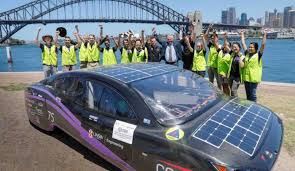
Breaking News
Importing Poverty into America: Devolving Our Nation into Stupid
 Grand Theft World Podcast 273 | Goys 'R U.S. with Guest Rob Dew
Grand Theft World Podcast 273 | Goys 'R U.S. with Guest Rob Dew
 Anchorage was the Receipt: Europe is Paying the Price… and Knows it.
Anchorage was the Receipt: Europe is Paying the Price… and Knows it.
 The Slow Epstein Earthquake: The Rupture Between the People and the Elites
The Slow Epstein Earthquake: The Rupture Between the People and the Elites
Top Tech News
 Drone-launching underwater drone hitches a ride on ship and sub hulls
Drone-launching underwater drone hitches a ride on ship and sub hulls
 Humanoid Robots Get "Brains" As Dual-Use Fears Mount
Humanoid Robots Get "Brains" As Dual-Use Fears Mount
 SpaceX Authorized to Increase High Speed Internet Download Speeds 5X Through 2026
SpaceX Authorized to Increase High Speed Internet Download Speeds 5X Through 2026
 Space AI is the Key to the Technological Singularity
Space AI is the Key to the Technological Singularity
 Velocitor X-1 eVTOL could be beating the traffic in just a year
Velocitor X-1 eVTOL could be beating the traffic in just a year
 Starlink smasher? China claims world's best high-powered microwave weapon
Starlink smasher? China claims world's best high-powered microwave weapon
 Wood scraps turn 'useless' desert sand into concrete
Wood scraps turn 'useless' desert sand into concrete
 Let's Do a Detailed Review of Zorin -- Is This Good for Ex-Windows Users?
Let's Do a Detailed Review of Zorin -- Is This Good for Ex-Windows Users?
 The World's First Sodium-Ion Battery EV Is A Winter Range Monster
The World's First Sodium-Ion Battery EV Is A Winter Range Monster
 China's CATL 5C Battery Breakthrough will Make Most Combustion Engine Vehicles OBSOLETE
China's CATL 5C Battery Breakthrough will Make Most Combustion Engine Vehicles OBSOLETE
Student-Designed Electric Car Breaks World Record by Crossing Australia in 6 Days...

A team of 14 college students have just set a Guinness world record with a solar-powered car that drove across Australia in 6 days using only $50 worth of energy.
The car, which has affectionally been named Violet, broke the record for using the lowest amount of energy on a cross-country drive earlier this month after it traveled roughly 2,500 miles (4,100 kilometers) from Perth to Sydney – and it arrived at its destination two days ahead of schedule.
The car was designed by the student-led Sunswift team at the University of New South Wales.
"I'm so excited we made it," said 20-year-old Courtney Morris, a mechanical engineering student involved with the project. "It's always so nerve-wracking to see the car that you built with your own hands on the road; I'm always afraid that something could change at any moment, but it all went pretty well and the team dynamic was great."
To set the record, the team had to keep the car's energy consumption to under 5.5 kilowatt hours (kWh) for every 62 miles. Actual energy consumption throughout the journey was an average of 3.25kWh per 62 miles, which is about 17 times less than an average Australian car.
By traveling an average of 372 miles (600 kilometers) a day, Violet used about the same energy per day as that of a standard household. When the vehicle is coasting at just 37 miles per hour (60kph), it uses about the same amount of energy as a four slice toaster.
"These students have pushed the boundaries of modern engineering and proven that solar powered cars are likely to be a big part of Australia's motoring future," said UNSW Dean of Engineering Professor Mark Hoffman, who was waiting for the students at the finish line.



